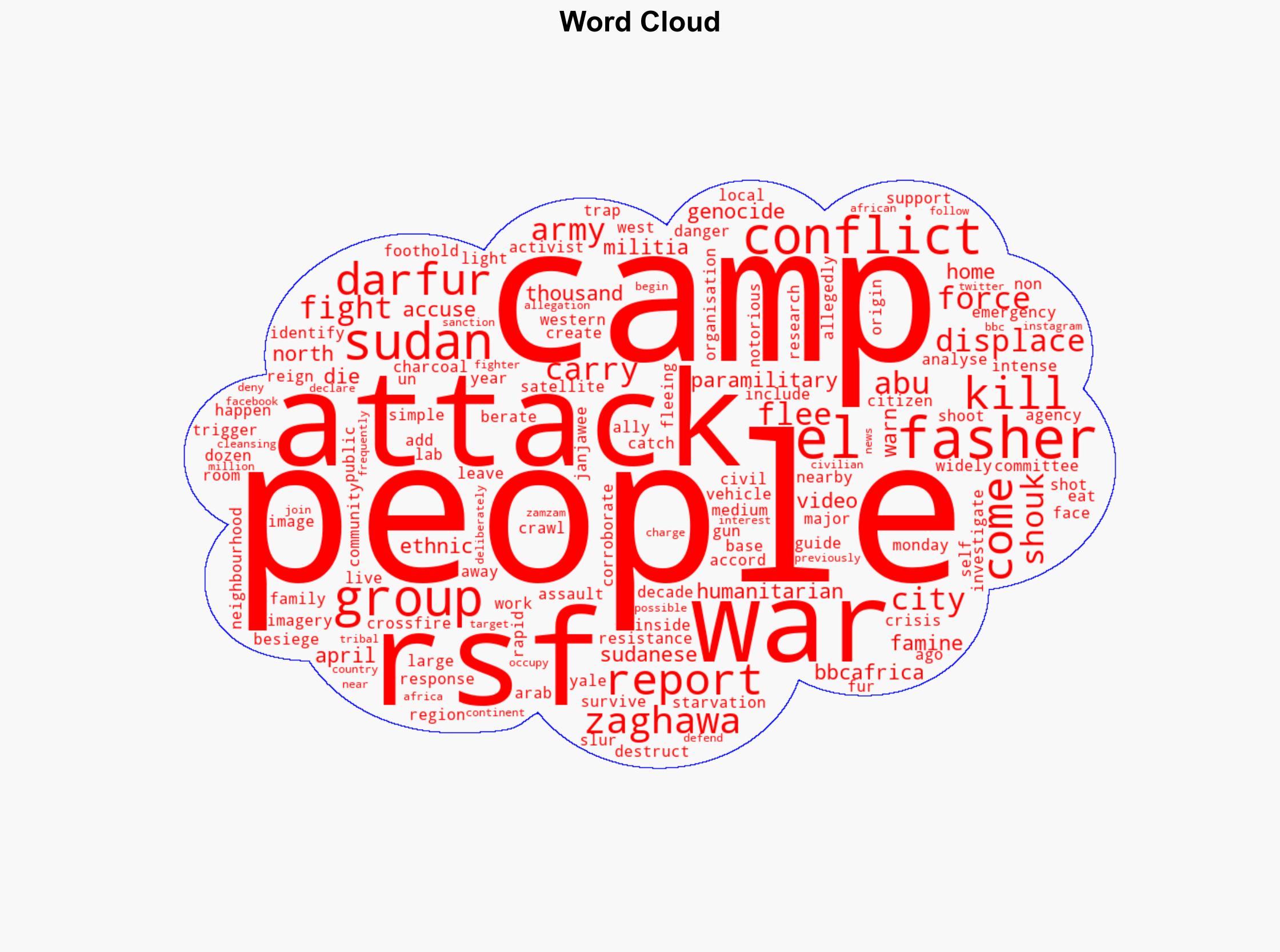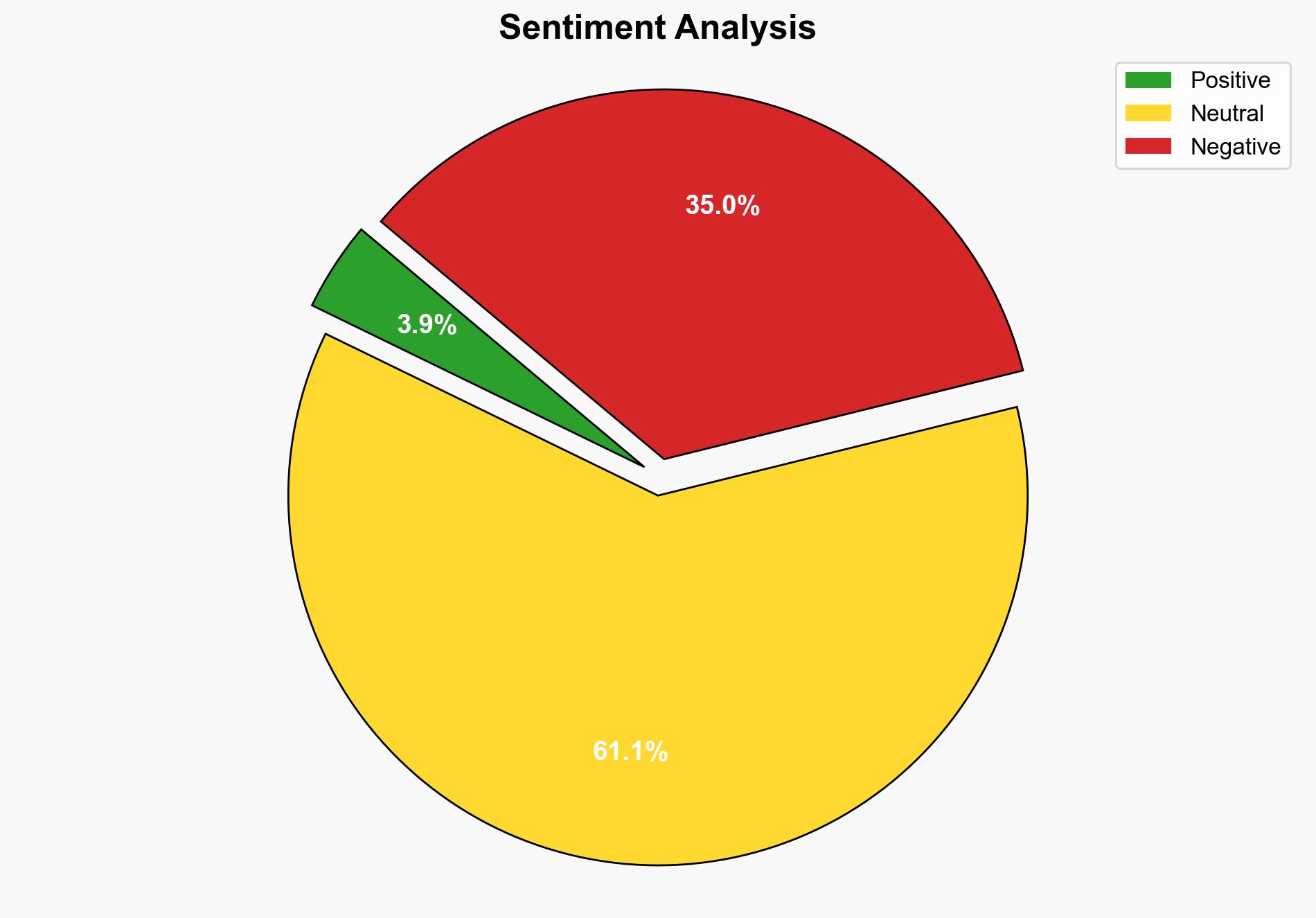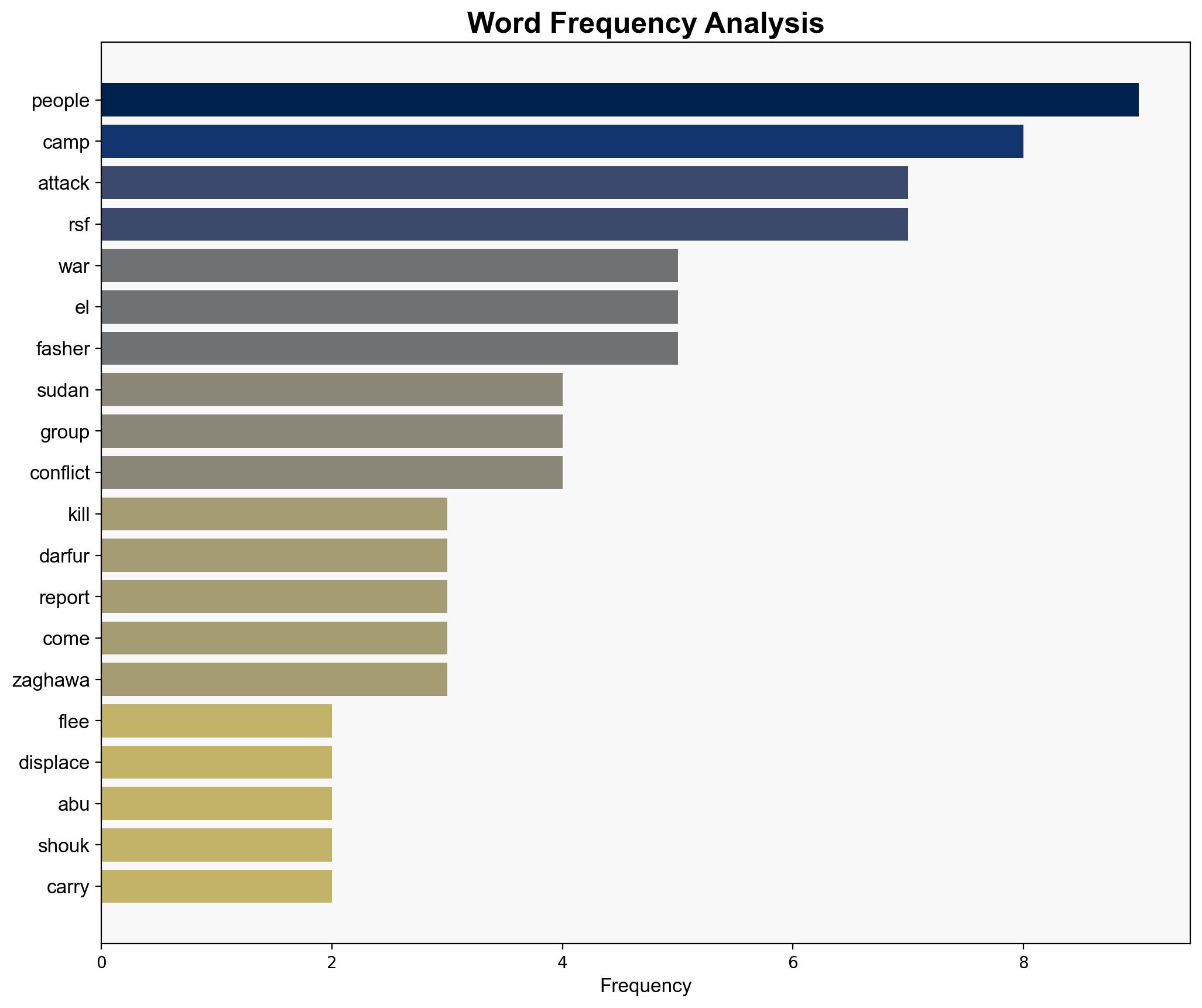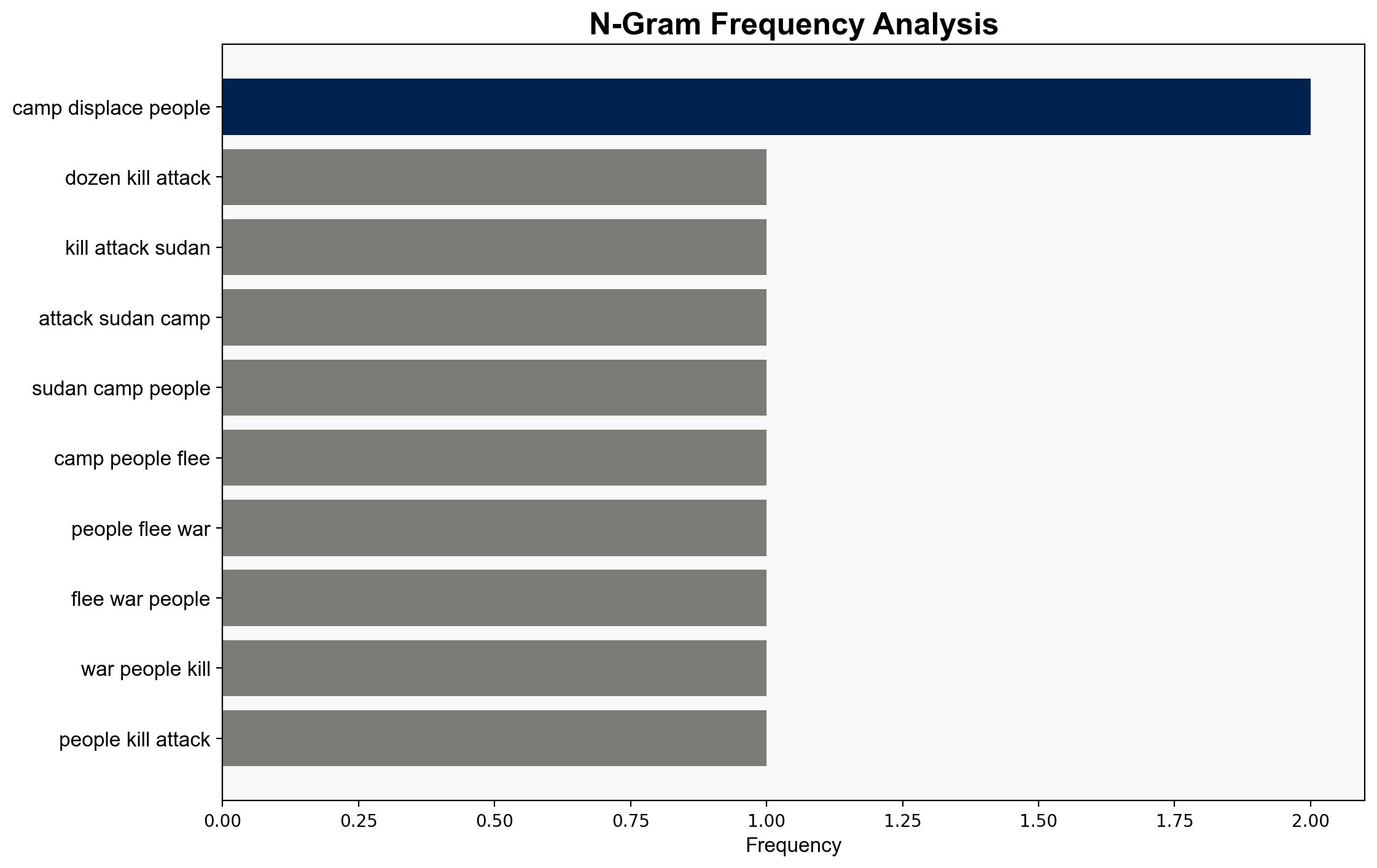Dozens killed in attack on Sudan camp for people who had fled war – BBC News
Published on: 2025-08-12
Intelligence Report: Dozens killed in attack on Sudan camp for people who had fled war – BBC News
1. BLUF (Bottom Line Up Front)
The most supported hypothesis suggests that the Rapid Support Forces (RSF) deliberately targeted the camp to suppress potential resistance and exert control over the region. Confidence level is moderate due to the complexity of the situation and limited corroborative evidence. Recommended action includes increasing diplomatic pressure on involved parties and enhancing humanitarian aid to affected areas.
2. Competing Hypotheses
1. **Deliberate Targeting by RSF**: The RSF intentionally attacked the camp to eliminate potential resistance from ethnic groups such as the Zaghawa, who have historically opposed them.
2. **Collateral Damage in Broader Conflict**: The attack was an unintended consequence of broader military operations in the region, with the camp caught in the crossfire between the RSF and opposing forces.
Using the Analysis of Competing Hypotheses (ACH) 2.0, the deliberate targeting hypothesis is better supported by reports of RSF using ethnic slurs and the historical context of RSF’s actions against non-Arab communities. However, the possibility of collateral damage cannot be entirely dismissed due to the chaotic nature of ongoing conflicts.
3. Key Assumptions and Red Flags
– **Assumptions**: It is assumed that RSF actions are driven by ethnic motivations and strategic objectives to control the region.
– **Red Flags**: Lack of independent verification of the attack details and potential bias in local reporting. The RSF’s denial of targeting civilians raises questions about the narrative.
– **Blind Spots**: Limited on-ground intelligence and potential misinformation campaigns by involved parties.
4. Implications and Strategic Risks
The attack exacerbates the humanitarian crisis, potentially leading to increased displacement and regional instability. It may also escalate ethnic tensions, prompting retaliatory actions and further violence. The ongoing conflict risks drawing in neighboring countries and destabilizing the broader region.
5. Recommendations and Outlook
- Enhance diplomatic engagement with regional actors to mediate and de-escalate tensions.
- Increase humanitarian aid and support for displaced populations to mitigate the immediate crisis.
- Scenario Projections:
- Best Case: Successful mediation leads to a ceasefire and humanitarian access.
- Worst Case: Escalation into a broader regional conflict involving neighboring states.
- Most Likely: Continued sporadic violence with intermittent humanitarian interventions.
6. Key Individuals and Entities
– Rapid Support Forces (RSF)
– Zaghawa ethnic group
– Local citizen activists in El Fasher
7. Thematic Tags
national security threats, regional conflict, humanitarian crisis, ethnic violence





